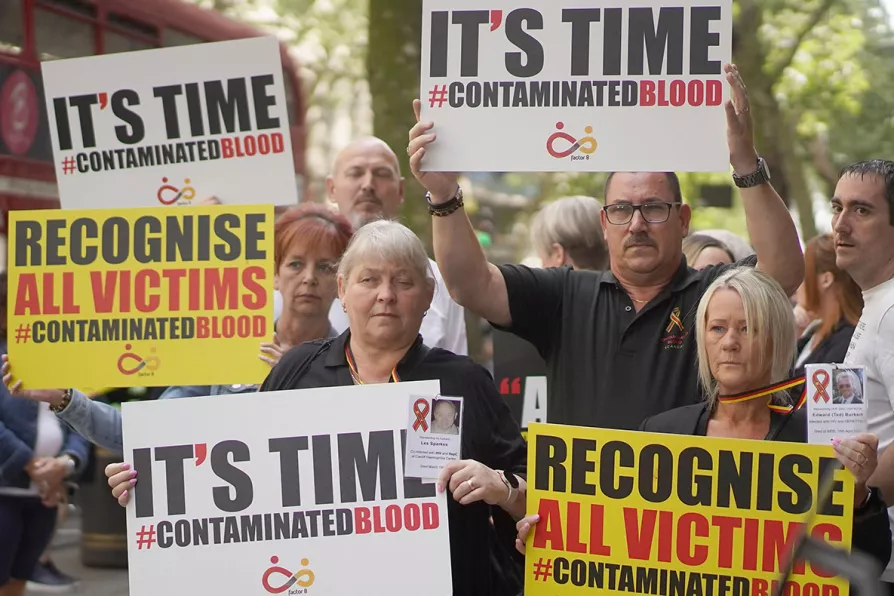
 Campaigners, including many who are personally infected and affected by infected blood, gather in Westminster, London, July 26, 2024
Campaigners, including many who are personally infected and affected by infected blood, gather in Westminster, London, July 26, 2024
INFECTED blood victims fear they won’t live to see compensation, campaigners have warned.
The probe into the infected blood scandal is to reopen later this week amid concerns about compensation for victims of one of the worst treatment disasters in NHS history.
Officials said the Infected Blood Inquiry hearings, to be held on Wednesday and Thursday, will examine the “timeliness and adequacy of the government’s response to compensation.”
Gary Webster, who was infected with HIV and hepatitis C when he attended Treloar’s School in Hampshire in the 1970s and ’80s, said he felt compensation efforts had dropped off since the inquiry published its main report in May last year.
He said: “Things aren’t going the way they should be going: it’s too slow and there seems to be a random system of who they pick.
“We fought for so many years to get to this stage … and now they’re saying they hope to pay all the infected by the end of 2027 and they hope to pay the affected by the end of 2029.
“Well, there’s two people dying a week. You only have to do the sums yourself to work out that’s a lot of people that aren’t going to get paid, aren’t going to get the justice and will die not knowing what happened.”
The 60-year-old added: “It just compounds the injury. I think people are scared now that they’re not going to survive until they get compensation.”
The Haemophilia Society said people’s lives had been ruined by the health service failures and delays to the compensation scheme have added to their suffering.
Kate Burt, chief executive of the charity, said: “Far from supporting this deeply damaged community, the delays and uncertainty created by the government have added to their suffering.
“We hope the inquiry’s new investigation will identify the urgent actions needed to fix this compensation scheme so that payments can be delivered quickly to everyone whose lives were ruined by this scandal.”
More than 30,000 people in Britain were infected with HIV and hepatitis C after they were given contaminated blood and blood products between the 1970s and early 1990s.
Some 3,000 people died as a result and survivors are living with lifelong health implications.
The government said it remains fully committed to co-operating with the inquiry, adding it has set aside £11.8 billion “to deliver what is one of the most comprehensive compensation schemes in modern history.”












